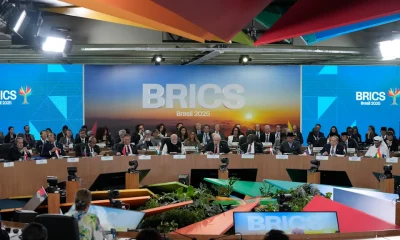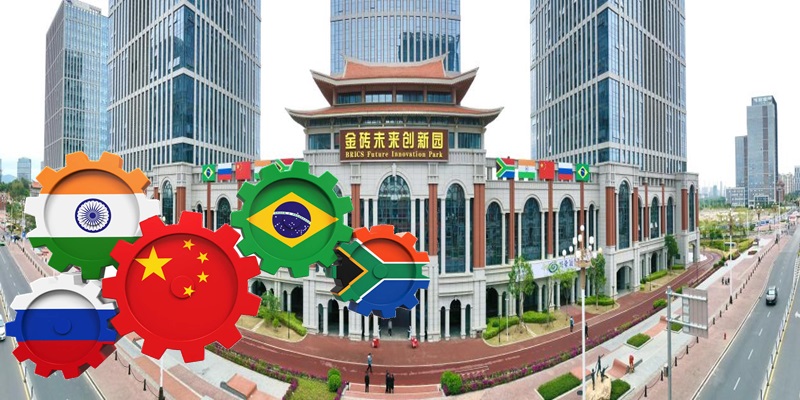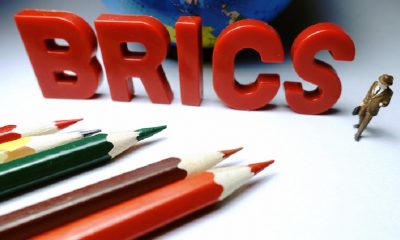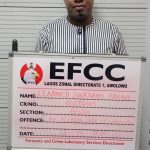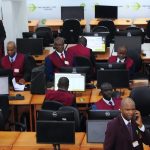World
BRICS Lacks Ambitious Economic, Trade Liberalization Agenda—Lissovolik
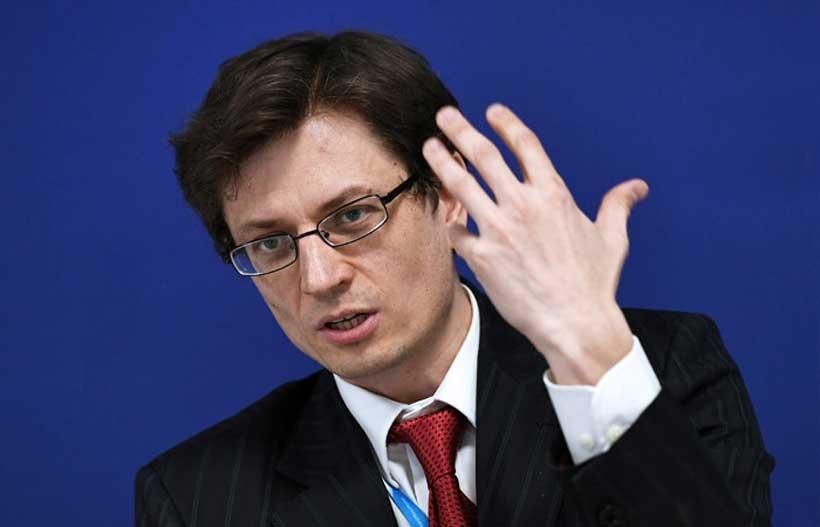
By Kestér Kenn Klomegâh
As stipulated by the guidelines, Russia takes over the rotating chairmanship of BRICS (Brazil, Russia, India, China and South Africa) from January 2024.
There are high hopes a lot more will change, especially towards widening its numerical strength and increasing support for the Global South.
In addition, there is also the expectation that BRICS will consolidate its role within the emerging geopolitical processes and global competition for Africa. China and Russia are currently making efforts to assert influence more aggressively, despite the challenges and obstacles, in cooperating with Africa.
According to authentic reports, a number of African countries such as Algeria, Angola, DR Congo, Gabon, Guinea-Bissau, Kenya, Nigeria, Senegal, Sudan, Tunisia, Uganda and Zimbabwe have expressed interest in joining BRICS. Egypt and Ethiopia have gained approval for full-fledged membership in BRICS during the last summit held in Johannesburg, South Africa.
In this insightful interview, our media executive, Kestér Kenn Klomegâh, attempted to find out more about the future evolutionary relationship of BRICS with Africa, and aspects of Russia’s policy towards Africa from Yaroslav Lissovolik, who is the founder of BRICS+ Analytics – a think-tank that explores the potential of the BRICS+ format in the global economy.
Lissovolik previously worked as chief economist and head of research at Deutsche Bank Russia, the Eurasian Development Bank as well and Sberbank. He also worked as an Advisor to Russia’s Executive Director in the International Monetary Fund. Here are excerpts of our wide-ranging discussion:-
As Russia prepares to take over the rotating chairmanship of the BRICS group in January 2024, what are some of the expectations?
The expectation is that Russia will likely pursue a broad agenda with closer connectivity of BRICS to Africa being one of its key items. One of the possible directions in Russia’s chairmanship may be the path of «integration of integrations» — the creation of a cooperation platform for the regional organizations of the Global South such as the Eurasian Economic Union and the Shanghai Cooperation Organization (SCO) as well as BRICS.
This may be complemented by efforts to add more economic weight to the BRICS grouping by developing the payment mechanisms within BRICS to conduct settlements in national currencies. There may also be the continuation of the BRICS expansion process with possible further steps to expand the core as well as to create a group of BRICS partners from among the leading members of the developing world community.
Can China and Russia (both BRICS members) halt the current U.S. global dominance? What mechanisms are available for effecting this process?
Within BRICS both China and Russia will likely cooperate towards creating those financial and economic mechanisms that are lacking in the global economy. The purpose of BRICS is not to undermine any economy, but to create cooperative platforms for economic cooperation among developing countries. In fact, the BRICS and BRICS+ formats may in the future be complemented by what I call the BRICS++ format which could include the participation of developed economies, regional blocs and their development institutions.
My view is that BRICS will develop along a path of becoming the most inclusive and open platform in the global economy that may serve as the basis for a revitalized and more sustainable globalization effort. Such a platform may with time include the participation of the Bretton Woods institutions and other key players of the global economy from the Western world.
Overall, there are not too many economic mechanisms created thus far by the BRICS — the main economic contribution of the BRICS has been the creation of the New Development Bank (NDB) and the BRICS Contingent Reserve Arrangement (CRA).
The BRICS NDB is set to expand its membership to include more developing economies. There are also plans within BRICS to widen the mandate of the BRICS CRA to make it more effective in supporting member countries.
What is lacking at this stage is a financial mechanism that would facilitate the payments in national currencies among the BRICS economies — discussions on the creation of such a mechanism (widely referred to as BRICS Pay) have been ongoing since at least 2017, but progress in this area has been moderate at best. Furthermore, the issue of the creation of a common currency or an accounting unit for all BRICS countries has also progressed slowly.
What are your views about the key challenges confronting BRICS in pursuit of leading the emerging reconfiguration and new political and economic architecture?
The main challenges facing the BRICS grouping have to do with a lack of an ambitious economic agenda. Thus far the strong momentum exhibited by BRICS on the international stage is mostly political/geopolitical as reflected in the sizeable number of developing countries expressing their desire to join the grouping.
This widening of the ranks of the BRICS bloc renders the attainment of consensus even more difficult — something that will be critical in adopting decisions on economic cooperation. And on the economic front there are still a lot of issues that are yet to be addressed — apart from the financial track related to the common payment systems and a potential common currency/accounting unit, another crucial theme is trade liberalization among the BRICS economies and across the economies of the Global South more broadly.
The BRICS need an ambitious trade liberalization agenda that would favour developing economies, especially Africa. At this stage, import tariffs in BRICS countries are relatively high, especially on agricultural products — there is significant scope for the BRICS economies to lower trade barriers to support the modernization of Africa and other regions of the Global South.
There has been much talk on the Global South, and Africa is geographically located there. What are Africa’s weaknesses and strengths in this emerging multipolarity?
One of the most significant strengths wielded by Africa on the international stage is its rising solidarity and rising coordination of the continent’s economies on the international stage. This is vividly exemplified by the rising prominence of the African Union (AU) in some of the key international fora. The AU in 2023 became a member of the G20, while also becoming increasingly active in international mediation efforts and discussions on economic cooperation with other regional blocs.
The AU has been also successful in advancing the project of Africa’s regional integration via the African Continental Free Trade Area (AfCFTA). Again, the best way in which the BRICS could contribute towards the success of this regional integration project is via greater trade openness to African economies. The success of the AfCFTA would go a long way towards overcoming the limitations faced by Africa’s economy in terms of low intra-continental regional connectivity and trade.
Let’s finally talk about some specific tangible roles Africa could play in the geopolitical changes. Do you think the African Union also need some urgent reforms in order to perform effectively in these evolving processes?
In my view, Africa could play a crucial role in the coming years both at the level of the developing world and globally. In particular, the African Union given its membership in the G20 and South Africa’s presidency in the G20 in 2025 could launch important initiatives aimed at boosting the resiliency of the global economy.
One such initiative could involve the creation of a platform for regional blocs such as the AU, MERCOSUR, ASEAN, EU and other blocs in which G20 countries are members. Such a platform for regional arrangements could be launched as a G20 engagement group, the R20 or regional 20 — in effect, it would represent a new level of global governance formed by regional integration arrangements and their development institutions.
Thus far, there is no mechanism for horizontal coordination of regional integration groups and their development institutions in the world economy.
A similar effort could be undertaken by the African Union within the realm of the Global South — the AU could lead the establishment of economic linkages with other regional blocs from the developing world, including MERCOSUR, SCO, EAEU and ASEAN. Such a platform could serve as a basis for an expanded BRICS+ circle that would encompass the majority of developing economies.
In the longer term, the AU could also participate in the reconstruction and the reform of the main global institutions and fora such as the WTO, the G20 and the UN Security Council.
With respect to the WTO, there may be a case for the African Union becoming a member of this organization, just like it did in the case of the G20 alongside the EU as a regional bloc.
In this scenario, the AU could represent the developing world in both the WTO and the G20 with initiatives countering protectionism and beggar-thy-neighbour policies that have become so prevalent over the course of the past decade.
As the role of the AU gains traction in the world economy, there may be a stronger case for Africa’s greater representation in the UN governing bodies such as the UN Security Council.
Overall, the main potential for Africa and the African Union in my view lies in pursuing the path of «integration of integrations, i.e. the building of cooperative linkages and platforms between Africa’s regional integration projects and development institutions with regional peers elsewhere in the world economy.
This process of greater cooperation among the regional integration blocs is only starting and the African Union could lead this important process that opens up new communication lines and possibilities for cooperation in the world economy.
World
Iranian Supreme Leader Ali Khamenei Dies After Air Strikes

By Dipo Olowookere
Iranian Supreme Leader, Mr Ayatollah Ali Khamenei, has died after coordinated airstrikes carried out by the United States and Israel on Tehran on Saturday morning.
His death was confirmed on Sunday morning by Iranian state media, which also disclosed that his daughter and grandchild were among those killed in the bombardment, which destroyed his compound.
Mr Khamenei was killed during a meeting with top leaders of the Middle East country yesterday, including the Defence Minister Amir Nasirzadeh and Revolutionary Guard commander Mohammad Pakpour, who reportedly died too.
His elimination has sparked mixed reactions, with some Iranians on the streets celebrating his demise, and others condemning the joint air strikes.
The President of the United States, Mr Donald Trump, described the late Iranian leader as “one of the most evil people in history,” expressing satisfaction at the action, which he said was “successful,” as it represented justice for both Iranians and Americans.
Meanwhile, Tehran has vowed to further respond to the attacks after initially firing missiles at six neighbours, including Qatar, Saudi Arabia, Kuwait, UAE, Bahrain, and Jordan.
Flight operations in the region have been disrupted because of the retaliatory action of Iran over the weekend, though most of the missiles were intercepted.
World
AfBD, AU Renew Call for Visa-Free Travel to Boost African Economic Growth

By Adedapo Adesanya
The African Development Bank (AfDB) and the African Union have renewed their push for visa-free travel to accelerate Africa’s economic transformation.
The call was reinforced at a High-Level Symposium on Advancing a Visa-Free Africa for Economic Prosperity, where African policymakers, business leaders, and development institutions examined the need for visa-free travel across the continent.
The consensus described the free movement of people as essential to unlocking Africa’s economic transformation under the African Continental Free Trade Area (AfCFTA).
The symposium was co-convened by AfDB and the African Union Commission on the margins of the 39th African Union Summit of Heads of State and Government in Addis Ababa.
The participants framed mobility as the missing link in Africa’s integration agenda, arguing that while tariffs are falling under AfCFTA, restrictive visa regimes continue to limit trade in services, investment flows, tourism, and labour mobility.
On his part, Mr Alex Mubiru, Director General for Eastern Africa at the African Development Bank Group, said that visa-free travel, interoperable digital systems, and integrated markets are practical enablers of enterprise, innovation, and regional value chains to translate policy ambitions into economic activity.
“The evidence is clear. The economics support openness. The human story demands it,” he told participants, urging countries to move from incremental reforms to “transformative change.”
Ms Amma A. Twum-Amoah, Commissioner for Health, Humanitarian Affairs and Social Development at the African Union Commission, called for faster implementation of existing continental frameworks.
She described visa openness as a strategic lever for deepening regional markets and enhancing collective responses to economic and humanitarian crises.
Former AU Commission Chairperson, Ms Nkosazana Dlamini-Zuma, reiterated that free movement is central to the African Union’s long-term development blueprint, Agenda 2063.
“If we accept that we are Africans, then we must be able to move freely across our continent,” she said, urging member states to operationalise initiatives such as the African Passport and the Free Movement of Persons Protocol.
Ghana’s Trade and Industry Minister, Mrs Elizabeth Ofosu-Adjare, shared her country’s experience as an early adopter of open visa policies for African travellers, citing increased business travel, tourism, and investor interest as early dividends of greater openness.
The symposium also reviewed findings from the latest Africa Visa Openness Index, which shows that more than half of intra-African travel still requires visas before departure – seen by participants as a significant drag on intra-continental commerce.
Mr Mesfin Bekele, Chief Executive Officer of Ethiopian Airlines, called for full implementation of the Single African Air Transport Market (SAATM), saying aviation connectivity and visa liberalisation must advance together to enable seamless travel.
Regional representatives, including Mr Elias Magosi, Executive Secretary of the Southern Africa Development Community, emphasised the importance of building trust through border management and digital information-sharing systems.
Ms Gabby Otchere Darko, Executive Chairman of the Africa Prosperity Network, urged governments to support the “Make Africa Borderless Now” campaign, while tourism campaigner Ras Mubarak called for more ratifications of the AU Free Movement of Persons protocol.
Participants concluded that achieving a visa-free Africa will require aligning migration policies, digital identity systems, and border infrastructure, alongside sustained political commitment.
World
Nigeria Exploring Economic Potential in South America, Particularly Brazil

By Kestér Kenn Klomegâh
In this interview, Uche Uzoigwe, Secretary-General of NIDOA-Brazil, discusses the economic potential in South America, particularly Brazil, and investment incentives for Brazilian corporate partners for the Federal Republic of Nigeria (FRN). Follow the discussion here:
How would you assess the economic potential in the South American region, particularly Brazil, for the Federal Republic of Nigeria? What investment incentives does Nigeria have for potential corporate partners from Brazil?
As the Secretary of NIDOA Brazil, my response to the questions regarding the economic potentials in South America, particularly Brazil, and investment incentives for Brazilian corporate partners would be as follows:
Brazil, as the largest economy in South America, presents significant opportunities for the Federal Republic of Nigeria. The country’s diverse economy is characterised by key sectors such as agriculture, mining, energy, and technology. Here are some factors to consider:
- Natural Resources: Brazil is rich in natural resources like iron ore, soybeans, and biofuels, which can be beneficial to Nigeria in terms of trade and resource exchange.
- Growing Agricultural Sector: With a well-established agricultural sector, Brazil offers potential collaboration in agri-tech and food security initiatives, which align with Nigeria’s goals for agricultural development.
- Market Size: Brazil boasts a large consumer market with a growing middle class. This represents opportunities for Nigerian businesses looking to export goods and services to new markets.
- Investment in Infrastructure: Brazil has made significant investments in infrastructure, which could create opportunities for Nigerian firms in construction, engineering, and technology sectors.
- Cultural and Economic Ties: There are historical and cultural ties between Nigeria and Brazil, especially considering the African diaspora in Brazil. This can facilitate easier business partnerships and collaborations.
In terms of investment incentives for potential corporate partners from Brazil, Nigeria offers several attractive incentives for Brazilian corporate partners, including:
- Tax Incentives: Various tax holidays and concessions are available under the Nigerian government’s investment promotion laws, particularly in key sectors like agriculture, manufacturing, and technology.
- Repatriation of Profits: Brazil-based companies investing in Nigeria can repatriate profits without restrictions, thus enhancing their financial viability.
- Access to the African Market: Investment in Nigeria allows Brazilian companies to access the broader African market, benefiting from Nigeria’s membership in regional trade agreements such as ECOWAS.
- Free Trade Zones: Nigeria has established free trade zones that offer companies the chance to operate with reduced tariffs and fewer regulatory burdens.
- Support for Innovation: The Nigerian government encourages innovation and technology transfer, making it attractive for Brazilian firms in the tech sector to collaborate, particularly in fintech and agriculture technology.
- Collaborative Ventures: Opportunities exist for joint ventures with local firms, leveraging local knowledge and networks to navigate the business landscape effectively.
In conclusion, fostering a collaborative relationship between Nigeria and Brazil can unlock numerous economic opportunities, leading to mutual growth and development in various sectors. We welcome potential Brazilian investors to explore these opportunities and contribute to our shared economic goals.
In terms of this economic cooperation and trade, what would you say are the current practical achievements, with supporting strategies and systemic engagement from NIDOA?
As the Secretary of NIDOA Brazil, I would highlight the current practical achievements in economic cooperation and trade between Nigeria and Brazil, alongside the supporting strategies and systemic engagement from NIDOA.
Here are some key points:
Current Practical Achievements
- Increased Bilateral Trade: There has been a notable increase in bilateral trade volume between Nigeria and Brazil, particularly in sectors such as agriculture, textiles, and technology. Recent trade agreements and discussions have facilitated smoother trade relations.
- Joint Ventures and Partnerships: Successful joint ventures have been established between Brazilian and Nigerian companies, particularly in agriculture (e.g., collaboration in soybean production and agricultural technology) and energy (renewables, oil, and gas), demonstrating commitment to mutual development.
- Investment in Infrastructure Development: Brazilian construction firms have been involved in key infrastructure projects in Nigeria, contributing to building roads, bridges, and facilities that enhance connectivity and economic activity.
- Cultural and Educational Exchange Programs: Programs facilitating educational exchange and cultural cooperation have led to strengthened ties. Brazilian universities have partnered with Nigerian institutions to promote knowledge transfer in various fields, including science, technology, and arts.
Supporting Strategies
- Strategic Trade Dialogue: NIDOA has initiated regular dialogues between trade ministries of both nations to discuss trade barriers, potential markets, and cooperative opportunities, ensuring both countries are aligned in their economic goals.
- Investment Promotion Initiatives: Targeted initiatives have been established to promote Brazil as an investment destination for Nigerian businesses and vice versa. This includes showcasing success stories at international trade fairs and business forums.
- Capacity Building and Technical Assistance: NIDOA has offered capacity-building programs focused on enhancing Nigeria’s capabilities in agriculture and technology, leveraging Brazil’s expertise and sustainable practices.
- Policy Advocacy: Continuous advocacy for favourable trade policies has been a key focus for NIDOA, working to reduce tariffs and promote economic reforms that facilitate investment and trade flows.
Systemic Engagement
- Public-Private Partnerships (PPPs): Engaging the private sector through PPPs has been essential in mobilising resources for development projects. NIDOA has actively facilitated partnerships that leverage both public and private investments.
- Trade Missions and Business Delegations: Organised trade missions to Brazil for Nigerian businesses and vice versa, allowing for direct engagement with potential partners, fostering trust and opening new channels for trade.
- Monitoring and Evaluation: NIDOA implements a rigorous monitoring and evaluation framework to assess the impact of various initiatives and make necessary adjustments to strategies, ensuring effectiveness in achieving economic cooperation goals.
Through these practical achievements, supporting strategies, and systemic engagement, NIDOA continues to play a pivotal role in enhancing economic cooperation and trade between Nigeria and Brazil. By fostering collaboration and leveraging shared resources, we aim to create a sustainable and mutually beneficial economic environment that promotes growth for both nations.
Do you think the changing geopolitical situation poses a number of challenges to connecting businesses in the region with Nigeria, and how do you overcome them in the activities of NIDOA?
The changing geopolitical situation indeed poses several challenges for connecting businesses in the South American region, particularly Brazil, with Nigeria. These challenges include trade tensions, shifting alliances, currency fluctuations, and varying regulatory environments. Below, I will outline some of the specific challenges and how NIDOA works to overcome them:
Current Challenges
- No Direct Flights: This challenge is obviously explicit. Once direct flights between Brazil and Nigeria become active, and hopefully this year, a much better understanding and engagement will follow suit.
- Trade Restrictions and Tariffs: Increasing trade protectionism in various regions can lead to higher tariffs and trade barriers that hinder the movement of goods between Brazil and Nigeria.
- Currency Volatility: Fluctuations in the value of currencies can complicate trade agreements, pricing strategies, and overall financial planning for businesses operating in both Brazil and Nigeria.
- Different regulatory frameworks and compliance requirements in both countries can create challenges for businesses aiming to navigate these systems efficiently.
- Supply Chain Disruptions: Changes in global supply chains due to geopolitical factors may disrupt established networks, impacting businesses relying on imports and exports between the two nations.
Overcoming Challenges through NIDOA.
NIDOA actively engages in discussions with both the Brazilian and Nigerian governments to advocate for favourable trade policies and agreements that reduce tariffs and improve trade conditions. This year in October, NIDOA BRAZIL holds its TRADE FAIR in São Paulo, Brazil.
What are the popular sentiments among the Nigerians in the South American diaspora? As the Secretary-General of the NIDOA, what are your suggestions relating to assimilation and integration, and of course, future perspectives for the Nigerian diaspora?
As the Secretary-General of NIDOA, I recognise the importance of understanding the sentiments among Nigerians in the South American diaspora, particularly in Brazil.
Many Nigerians in the diaspora take pride in their cultural roots, celebrating their heritage through festivals, music, dance, and culinary traditions. This cultural expression fosters a sense of community and belonging.
While many individuals embrace their new environments, they often face challenges related to cultural differences, language barriers, and social integration, which can lead to feelings of isolation.
Many express optimism about opportunities in education, business, and cultural exchange, viewing their presence in South America as a chance to expand their horizons and contribute to economic activities both locally and back in Nigeria.
Sentiments regarding acceptance vary; while some Nigerians experience warmth and hospitality, others encounter prejudice or discrimination, which can impact their overall experience in the host country. NIDOA BRAZIL has encouraged the formation of community organisations that promote networking, cultural exchange, and social events to foster a sense of belonging and support among Nigerians in the diaspora. There are currently two forums with over a thousand Nigerian members.
Cultural Education and Awareness Programs: NIDOA BRAZIL organises cultural education programs that showcase Nigerian heritage to local communities, promoting mutual understanding and appreciation that can facilitate smoother integration.
Language and Skills Training: NIDOA BRAZIL provides language courses and skills training programs to help Nigerians, especially students in tertiary institutions, adapt to their new environment, enhancing communication and employability within the host country.
Engaging in Entrepreneurship: NIDOA BRAZIL supports the entrepreneurial spirit among Nigerians in the diaspora by facilitating access to resources, mentorship, and networks that can help them start businesses and create economic opportunities.
Through its AMBASSADOR’S CUP COMPETITION, NIDOA Brazil has engaged students of tertiary institutions in Brazil to promote business projects and initiatives that can be implemented in Nigeria.
NIDOA BRAZIL also pushes for increased tourism to Brazil since Brazil is set to become a global tourism leader in 2026, with a projected 10 million international visitors, driven by a post-pandemic rebound, enhanced air connectivity, and targeted marketing strategies.
Brazil’s tourism sector is poised for a remarkable milestone in 2026, as the country expects to welcome over 10 million international visitors—surpassing the previous record of 9.3 million in 2025. This expected surge represents an ambitious leap, nearly doubling the country’s foreign-arrival numbers within just four years, a feat driven by a combination of pent-up global demand, strategic air connectivity improvements, and a highly targeted marketing campaign.
-

 Feature/OPED6 years ago
Feature/OPED6 years agoDavos was Different this year
-
Travel/Tourism10 years ago
Lagos Seals Western Lodge Hotel In Ikorodu
-

 Showbiz3 years ago
Showbiz3 years agoEstranged Lover Releases Videos of Empress Njamah Bathing
-

 Banking8 years ago
Banking8 years agoSort Codes of GTBank Branches in Nigeria
-

 Economy3 years ago
Economy3 years agoSubsidy Removal: CNG at N130 Per Litre Cheaper Than Petrol—IPMAN
-

 Banking3 years ago
Banking3 years agoSort Codes of UBA Branches in Nigeria
-

 Banking3 years ago
Banking3 years agoFirst Bank Announces Planned Downtime
-

 Sports3 years ago
Sports3 years agoHighest Paid Nigerian Footballer – How Much Do Nigerian Footballers Earn


